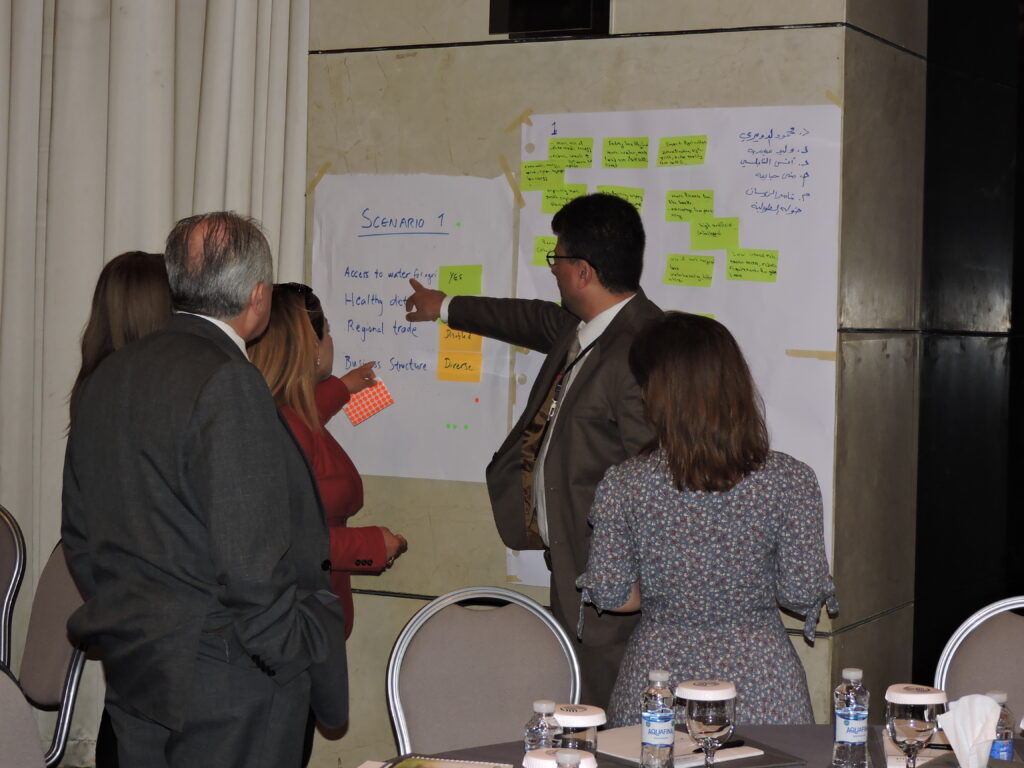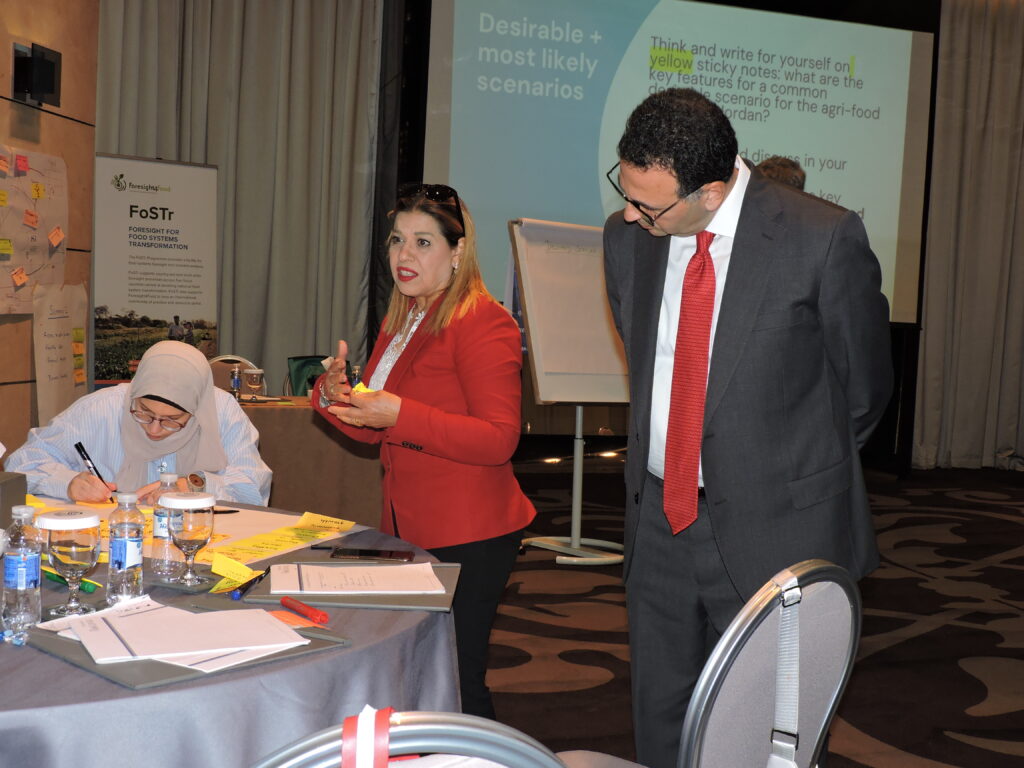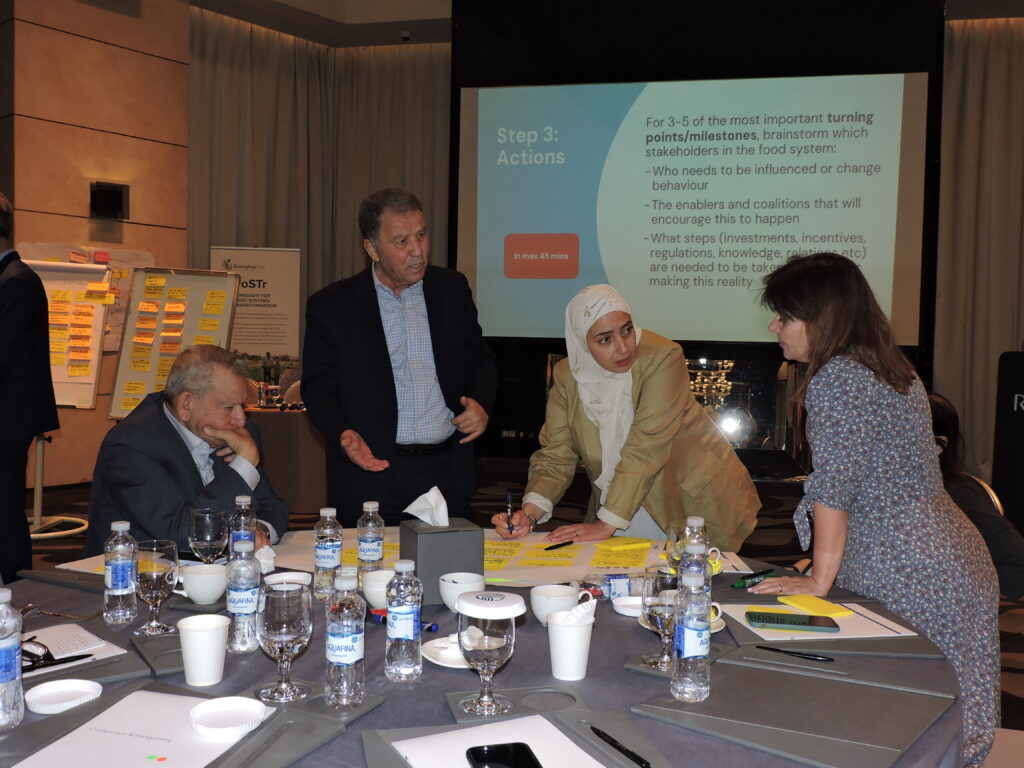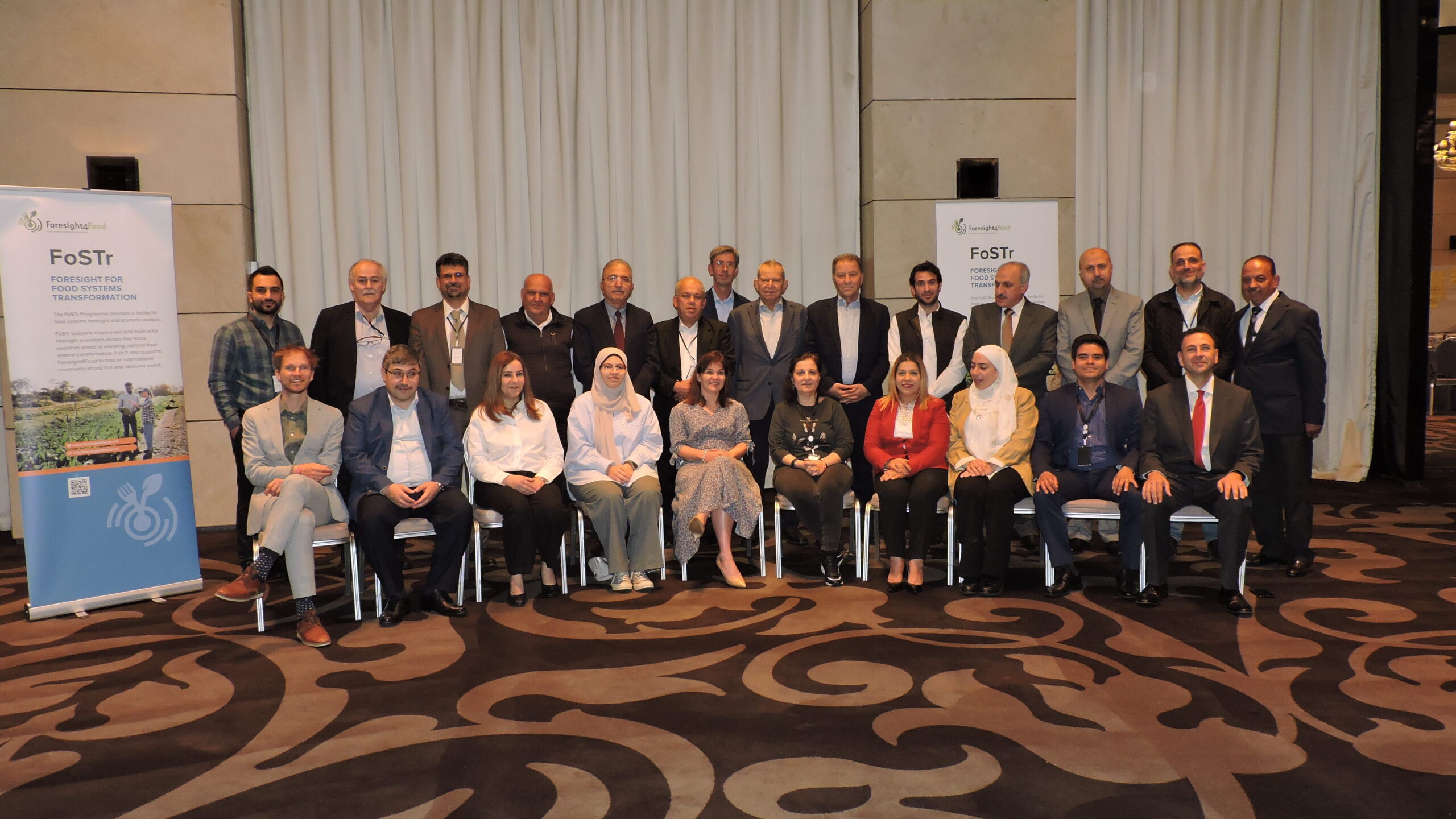by Bram Peters
As a part of the FoSTr programme, the Foresight4Food team organized the “Exploring Alternative Futures for Jordan’s Food System” workshop in Amman, Jordan that brought together food systems stakeholders in Amman to discuss the future of Jordan’s food security. Here are some of the observations and insights from the event.
With themes of resilience, adaptation, action, and collaboration, participants engaged in scenario planning and back-casting exercises to anticipate challenges and shape future outcomes. Key uncertainties like water availability, healthy diets, regional trade, and business structures were explored through four scenarios set in 2040. These insights, supported by quantitative modeling, fostered rich discussions about desirable futures and the actions needed today to create a sustainable, resilient food system for Jordan.
During the workshop, colleagues from the University of Jordan and Jordan University of Science and Technology presented four policy briefs. These were: Food Loss and Waste, Water-to-Food Conversion, State of Smallholder Farming in Jordan and Malnutrition. Each policy brief captures the state of knowledge and offers recommendations to explore how to address these issues from a food systems perspective.
The FoSTr team introduced four critical uncertainties that will be highly important and uncertain to the long-term future of the Jordan food system:
- The extent of fresh water available to agriculture
- The extent to which healthy diets are adopted
- Level of ease of regional trade
- The type of business structure the food system will have
Each of these uncertainties was combined to offer four scenarios, taking place in 2040, up for discussion with the participants. Supported by insights from quantitative simulation modelling, the implications on food systems outcomes were explored in each scenario. Some scenarios described that the people of Jordan adopt healthy diets despite a challenging regional trade situation. In others, severe limitations on fresh water for agriculture were seen in combination with a highly corporate-led food system.



Additionally, the participants explored how that situation might look in each. These scenarios served to open up minds towards the possibility of different situations emerging in the future and highlight the need for anticipatory action and systemic change.
The scenarios led to a discussion of what might be the ‘most likely‘ and ‘most desirable’ scenarios for the Jordan food systems stakeholders. The outline of a desirable future, informed by trends and uncertainties, was formulated to serve as a guiding star. A back-casting approach was used to then explore what events and turning points might occur between 2040 and now to realise that desired future. Based on this timeline, stakeholders brainstormed a range of different actions and stakeholders which are needed now, to already start pushing the system towards the Desired Future.
Building on the encouraging shared co-ownership of the results of the workshop, the Foresight4Food FoSTr team will continue efforts to develop policy briefs, deepen the action areas that were developed, and support the Food Security Council of Jordan in proving the underpinnings for the ongoing work on national food systems transformation.
